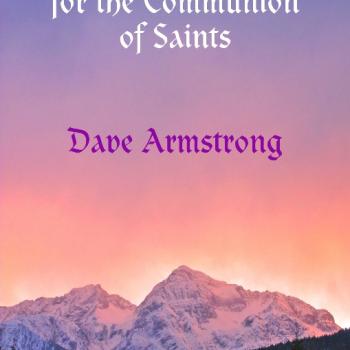These leaders place a high value on the people's engagement and empowerment, not only in worship but in the whole ministry. They help spiritual seekers to discern what kind of community they want to create together. Here the leader functions more like a DJ or curator who is working behind the scenes instead of being front and center.
The U.S.-based ministries are often led by women, a notable proportion of them women of color. Also, one finds LGBT people involved in all aspects of leadership. The communities also tend to be more racially inclusive, intergenerational and affirming than the traditional mainline congregation.
Those who are interested in continuing this conversation are invited to join me at a webinar on January 17 where I'll be talking about these communities on the fringes.
Garrett: What parts of what you witnessed in these mission-shaped ministries can be replicated by other communities and denominations?
Garrison: While my focus in Ancient Future Disciples was exploring U.S. Episcopal communities, I observe many of these above mentioned markers present in other faith communities. What's telling is that these communities tend to be "off radar." Many of the communities I've profiled in my last three books don't register on lists of hipster-type churches. While the leaders often engage in creative endeavors (albeit writing books or crafting CDs), they see their primary role as practitioners involved in the daily lives of their communities instead of author/speakers trying to market their wares on the Christian conference circuit.
Garrett: Do you see the communities you write about in Ancient Future Disciples as the future of the Church?
Garrison: They do represent an overall shifting I've been observing in recent years regarding what it means to be "the church" in an increasing pluralistic world. In particular, new developments in science, theology, psychology and other disciplines continue to inform the evolution of our thinking on topics like LGBT rights. In this video, Joseph Ward, Director of Believe Out Loud, and I explore the redefining of family values that we see transpiring in progressive faith communities.
Garrett: Evangelism means different things to different faith communities. What do you feel you understand about evangelism now that you didn't before you started this research?
Garrison: Once I outed myself as an apophatic Anglican, I kept finding kindred spirits who were more interested in exploring the mysteries together than trying to convert the other to a prescribed belief system. In this regard, I learned I have more in common with spiritual atheists than progressive evangelicals. Along those lines, those communities that seemed to have the most transformative effect on the communities put St. Francis' teachings into practice by preaching the gospel at all times, and when necessary using words.
Garrett: You note in 2010's Jesus Died for This? that "Religious satirists tend to be viewed askance, as though we entered the sacred sanctuary eating a cheese, bean, and broccoli burrito. God forbid we might cause a stink." Some people see religion and humor as unequally yoked—like a burro and a dolphin, maybe. What about the combination of humor and religion has always drawn you to this intersection? What do you think we can say with humor that doesn't get communicated as well otherwise?
Garrison: Well, as I noted in Washington Post's "On Faith" column, I thank God for those comedians who use humor and satire to point out the dangers of blindly following a fundamentalist form of Christianity. My involvement in communities like Asbo Jesus and Naked Pastor help keep me grounded by reminding me of the failings of institutional church (and my own personal foibles) through the use of their satirical cartoons. And while I'm not a parrothead by nature, there's much wisdom in these words of Jimmy Buffett: "If we didn't laugh, we would all go insane."





